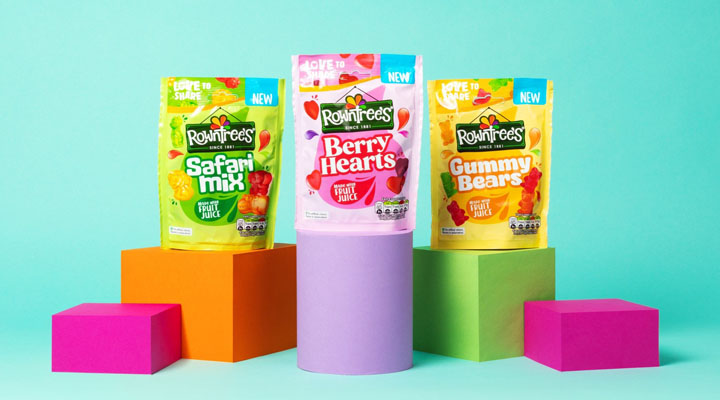Reducing sugar, salt and saturated fat
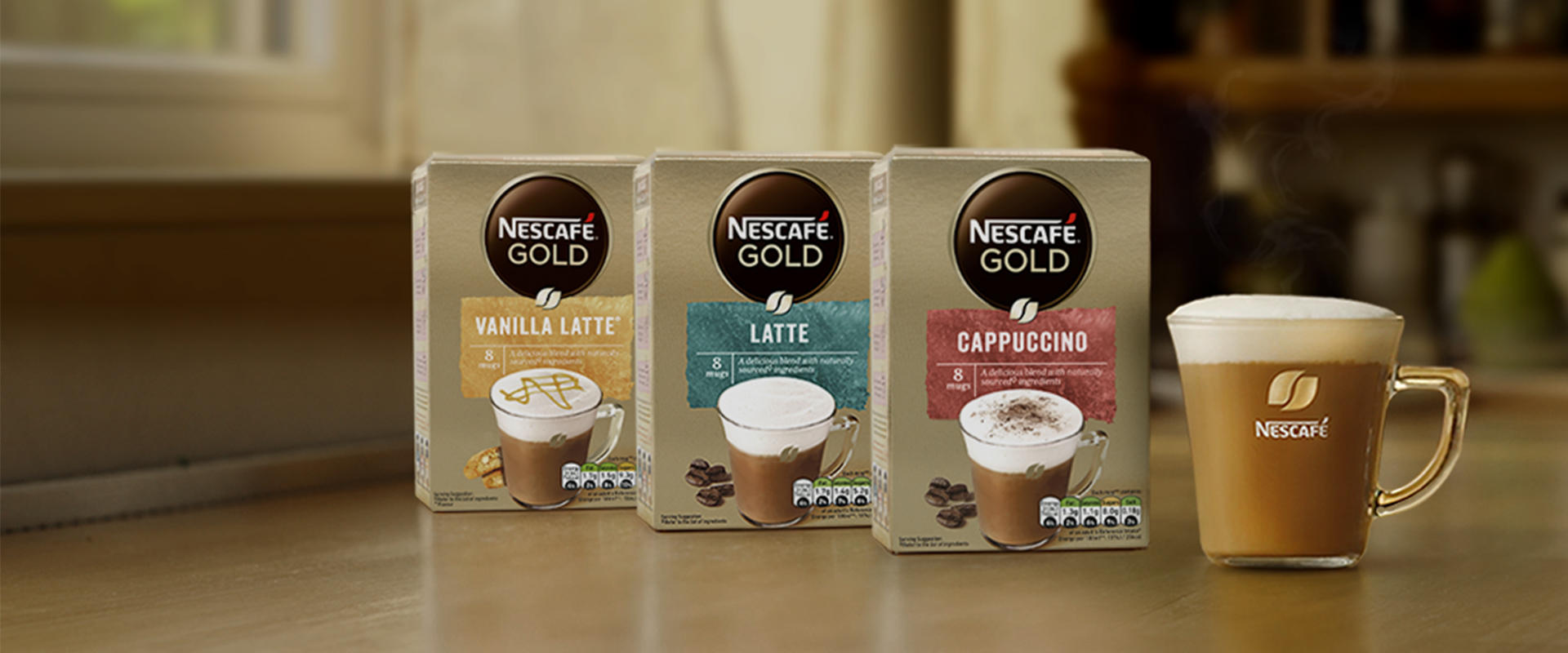
Sugar, salt, and saturated fats in moderation are an important part of a healthy, balanced diet. They also improve flavour and texture and help to preserve food for longer. But having too much of them increases our chances of developing obesity, diabetes or heart disease.
What are we doing to change things?
For more than 20 years we've been working to reduce the levels of sugar, salt and sodium, trans and saturated fats in our products, and to remove artificial trans fats (fats from partially hydrogenated oils) altogether.
This means reformulating many of our products to achieve a delicate balance - on one hand reducing salt, fat and sugar, and on the other keeping quality and flavour at a level where people don't feel the need to add ingredients back in or choose less healthy alternatives whilst still enjoying the brands they love.
How we're using less sugar
Source: Nestlé
We're constantly looking for ways to make our products healthier, while maintaining the taste and quality people and their pets love.
Since 2015 we've reduced the sugar content in our confectionery by 10% and have taken 700 tonnes of sugar and 2.5 billion calories out of our beverages in the UK and Ireland. When compared to 2010, during 2020 we used 516 million fewer teaspoons/2,052 fewer tonnes of sugar in our cereals.
10% less sugar in confectionery
Sugar is a key ingredient in confectionery products, not easily replaced and alternatives can't always maintain the taste and texture of chocolate or sugar confectionery.
We've invested heavily in research and development around the world, creating new technologies to overcome this challenge. And in just five years we've reduced sugar from across our UK confectionery portfolio by 10%.
We know that our consumers won't compromise on taste and so we have the challenge to produce the same delicious products but with less sugar. This might require smaller, gradual reductions of sugar and saturated fat in some products over time rather than big one-step reduction to ensure the same great taste.
Sugar reduction in our products
2.5 billion calories
removed
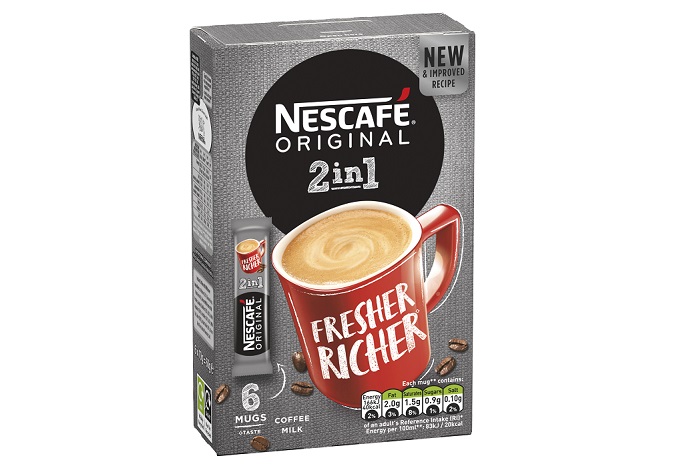
3 billion calories
removed
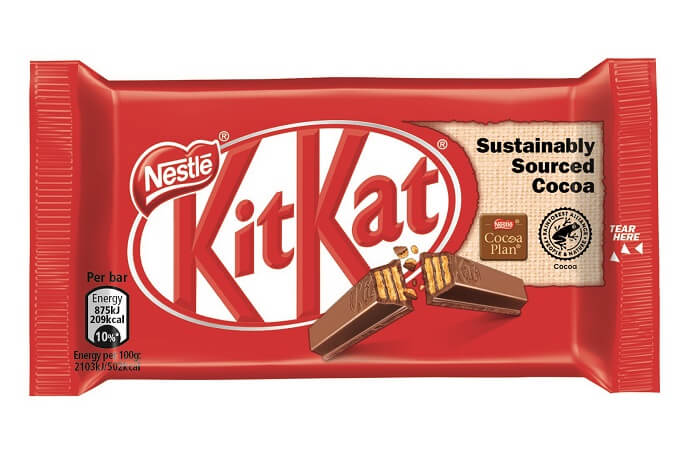
350 tonnes of sugar
130 million calories
removed
Milk content up from 26% to 37.5%
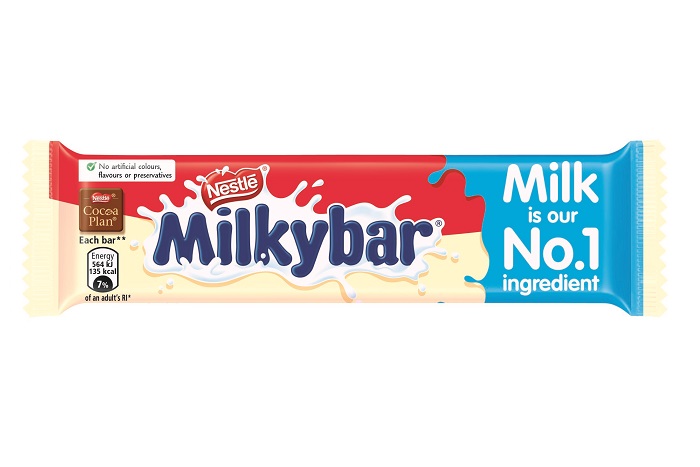
260 tonnes of sugar removed
Wholegrain up from 77.9% to 81.3%

36% less sugar
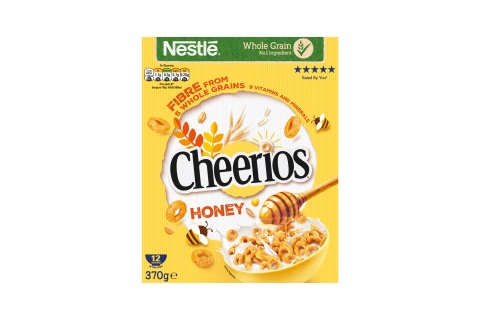
330 tonnes (16%) less sugar
Wholegrain up from 94.4% to 96.2%

112 tonnes of sugar removed
(10% less)
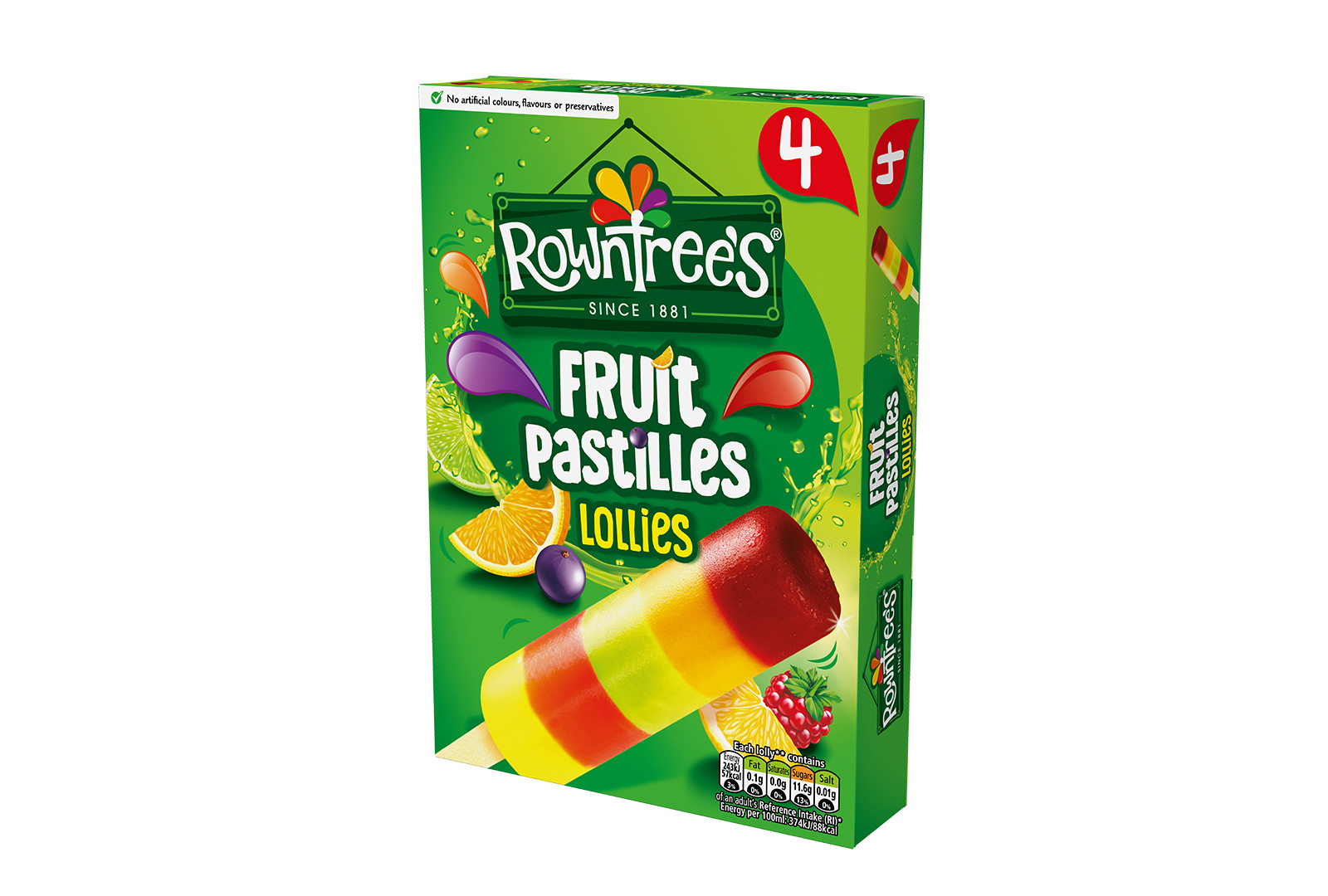
40% less sugar
46% less calories on average
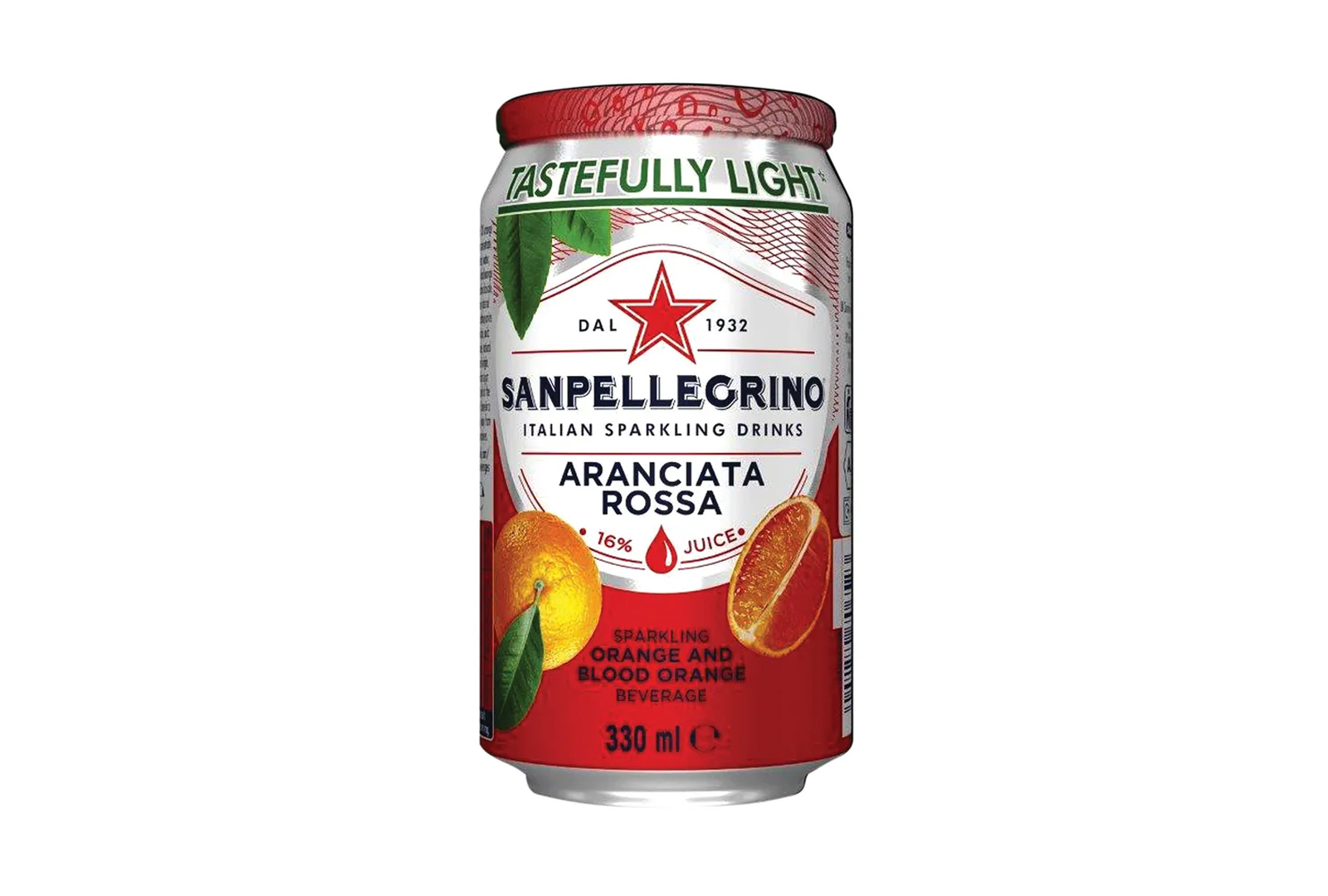
62 tonnes (20%) less sugar
247 million (5%) less calories
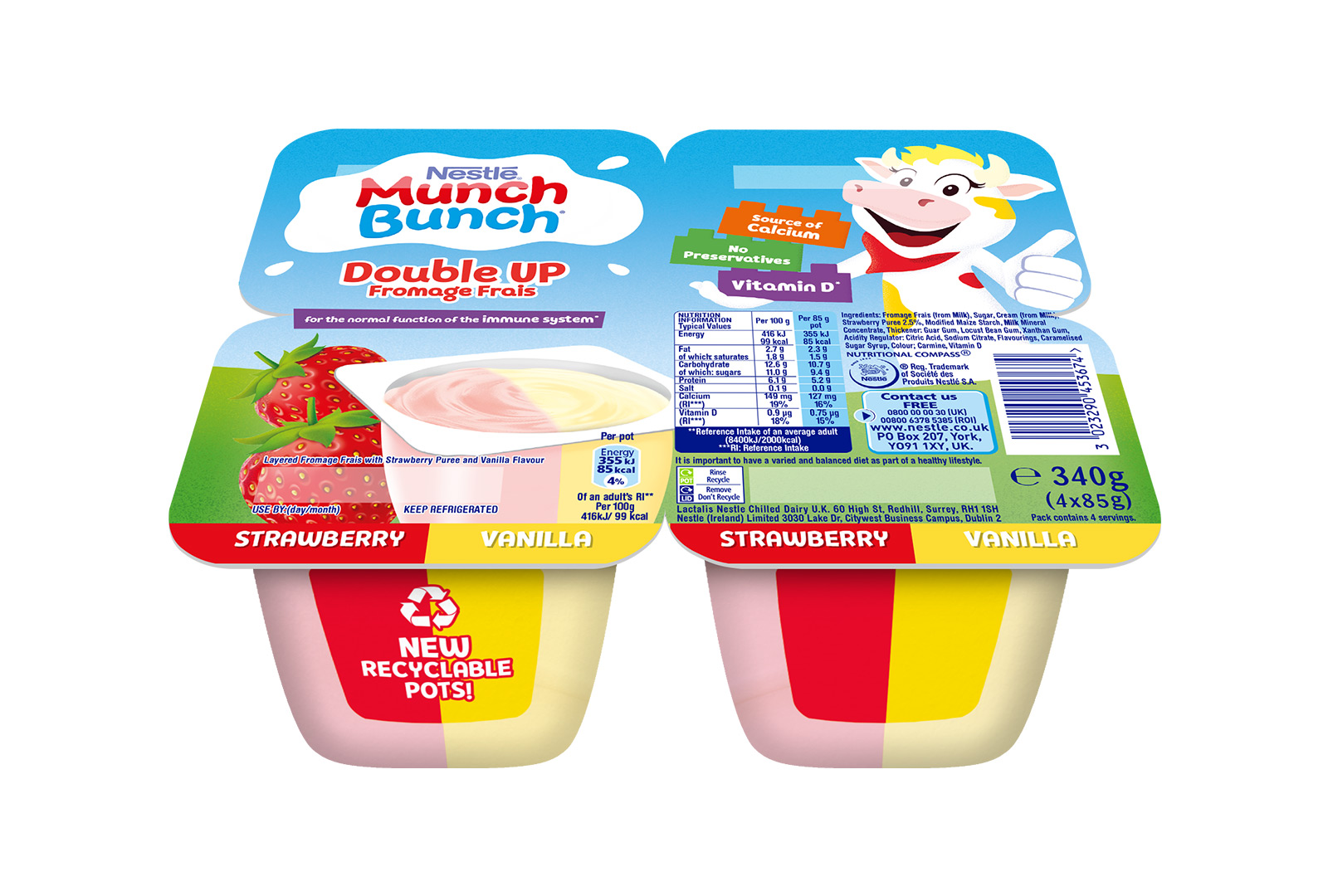
We won't stop here
In 2020, a Public Health England (PHE) report on the food and drink industry’s progress in reducing sugar to tackle obesity said …overall progress remains too slow. Faster and more robust action is needed to help us consume less sugar…” (PHE Chief Nutritionist, Dr. Alison Tedstone)
We take our public health responsibilities seriously. And, while we're proud of what we've achieved so far, we know that we can go further and do more. We’re continuing to invest in work to reformulate our products and in innovation that will help us make healthy and sustainable food accessible to all.
Salt reduction
Salt is essential to life. It’s also an important food ingredient, to add flavour, or to improve preservation or texture. But too much salt (sodium) in our diets increases the risk of high blood pressure, which in turn increases the chance of having a heart attack or a stroke.
Around 60% of the salt we consume in our diets is added to the foods we buy during manufacturing. That’s why we’ve supported the Government's Salt Reduction Programmes since they started in 2006. We are working to achieve the UK Government’s 2024 Salt Reduction Targets for products and relevant categories.
Salt reduction in our products
All Maggi noodles and recipe mixes meet the UK Government’s 2017 and/or 2024 Salt Reduction Targets.
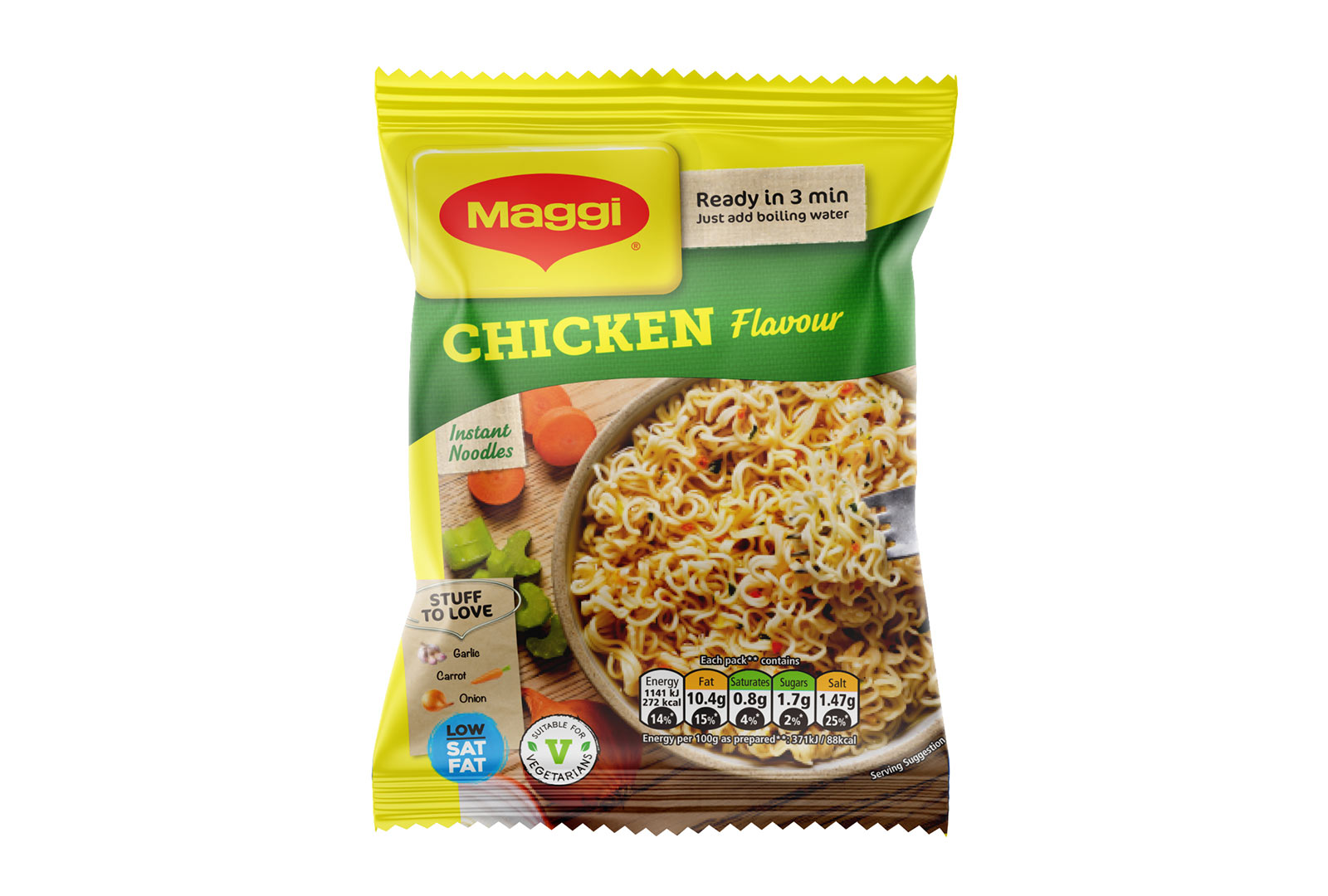
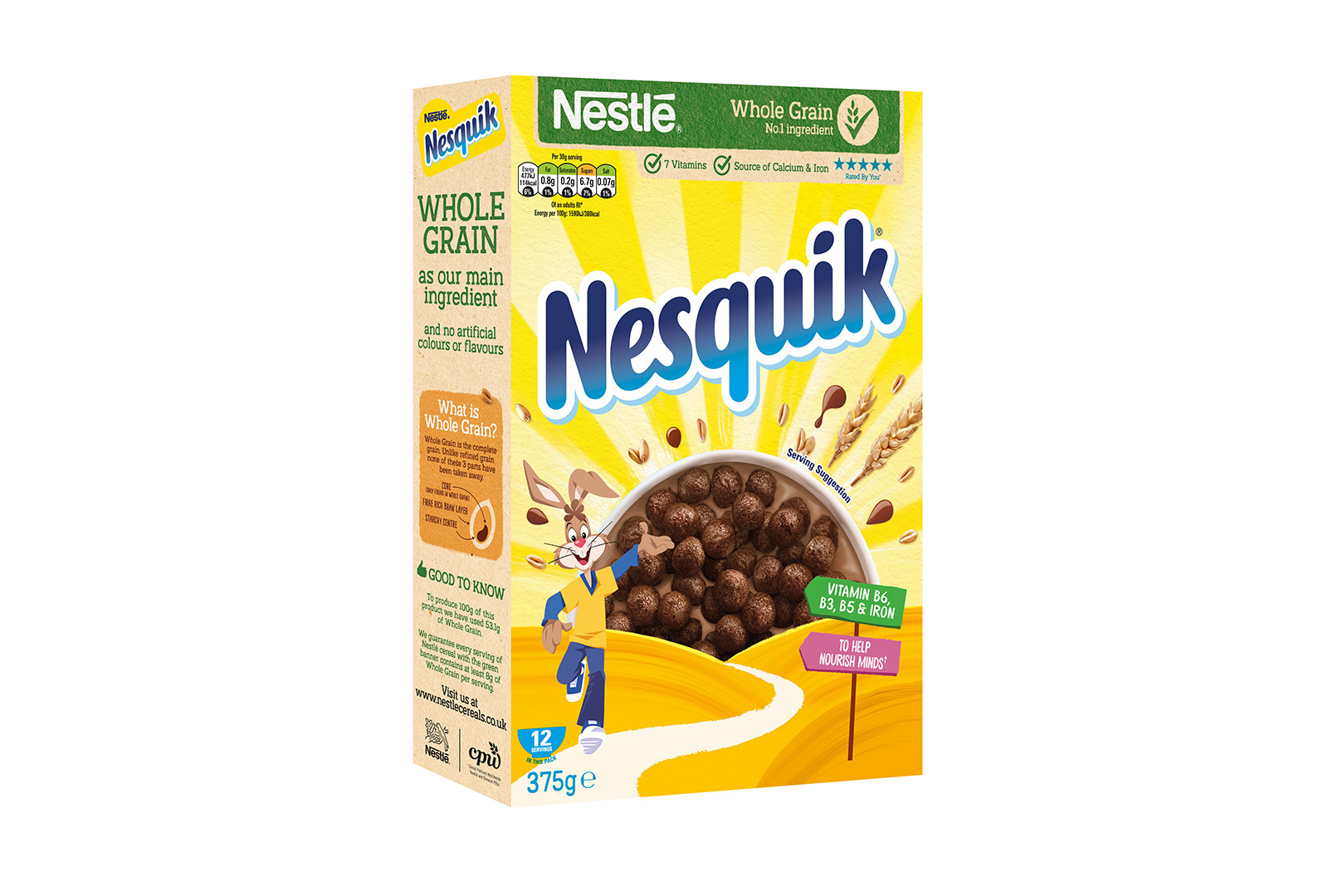
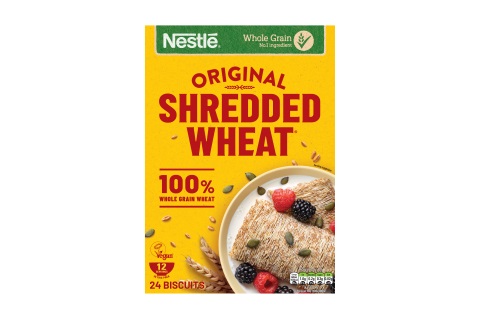
Fat chance
Overconsumption of artificial trans fats and saturated fats increase the chances of high cholesterol, heart disease and type-2 diabetes.
This is why we are reducing saturated fats in our products and have removed hydrogenated vegetable oils from our products since 2011. We're also campaigning globally for the elimination of industrial trans-fats from partially hydrogenated oils, for packaged and non-packaged foods.
Saturated fat reduction in our products
-
Nescafé Gold Frothy coffee range 26 tonnes of saturated fats removed from the range, which contains no artificial sweeteners, colours, flavours or preservatives.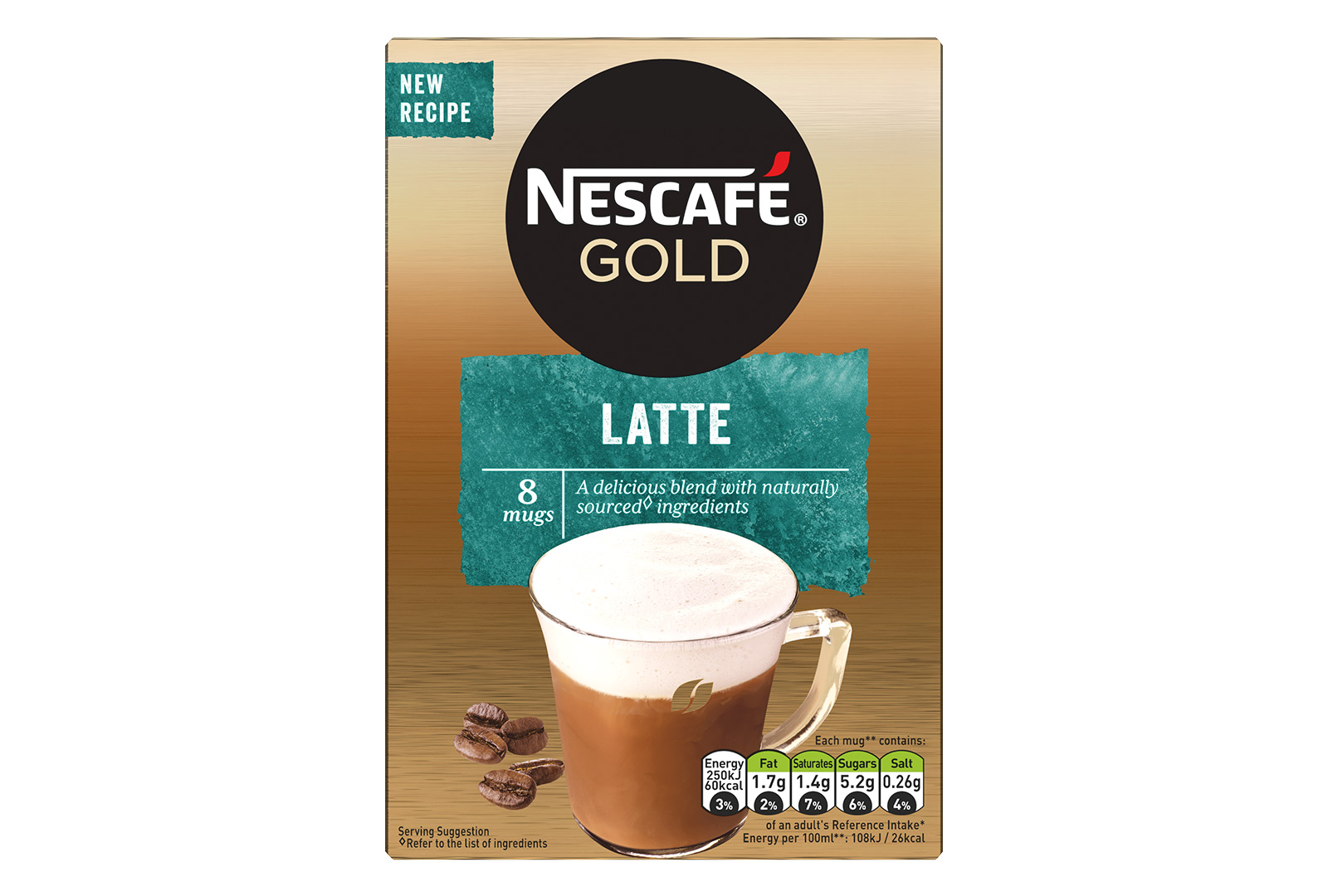
-
Maggi 5 tonnes of saturated fats removed from Maggi noodles and recipe mixes.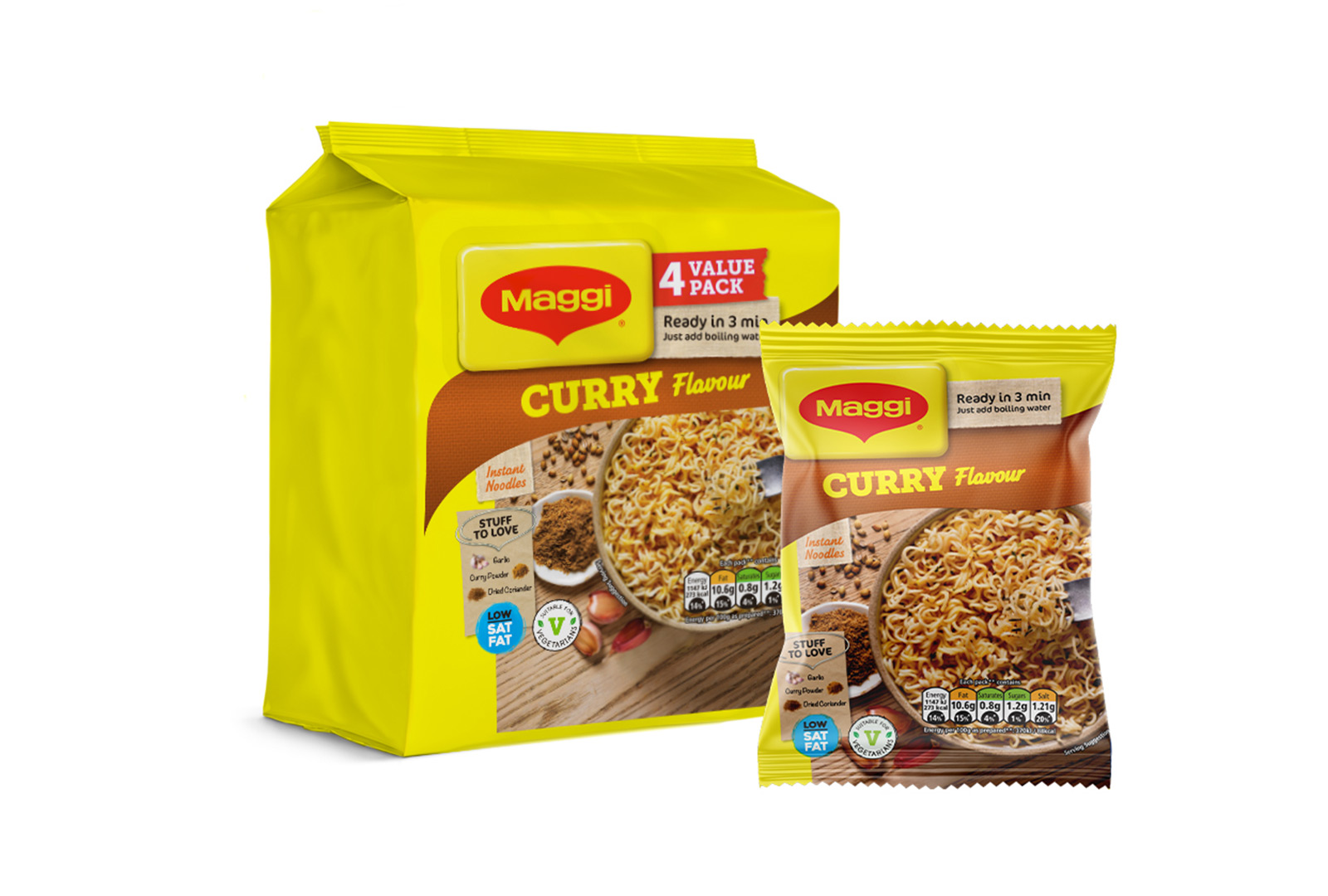
-
Fab ice cream 8 tonnes of saturated fats removed from the Fab ice cream recipe in 2015.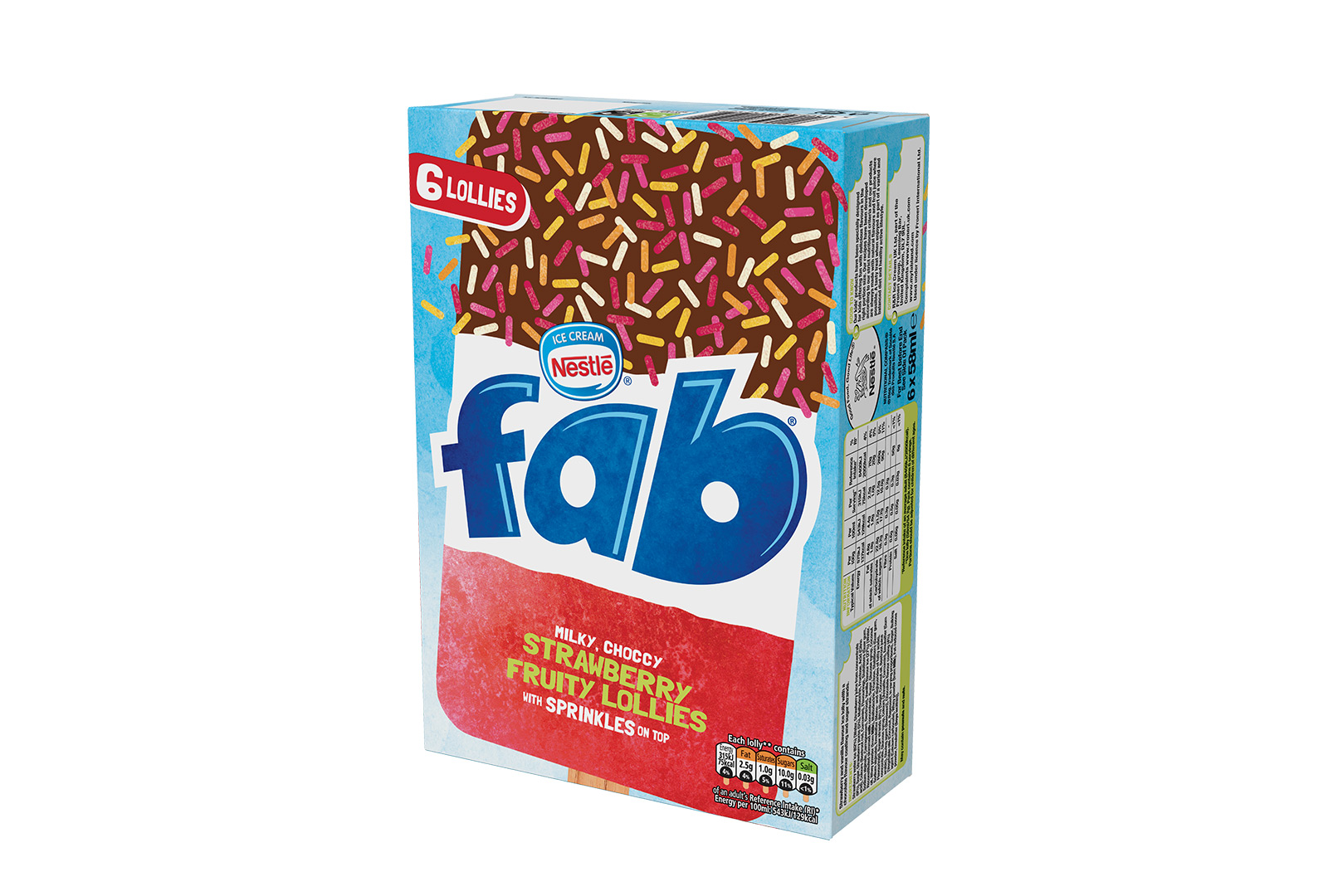
You may also be interested in
-
Introducing more whole grain and fibre The green banner on a box of our breakfast cereals means whole grain is the number one ingredient.Read More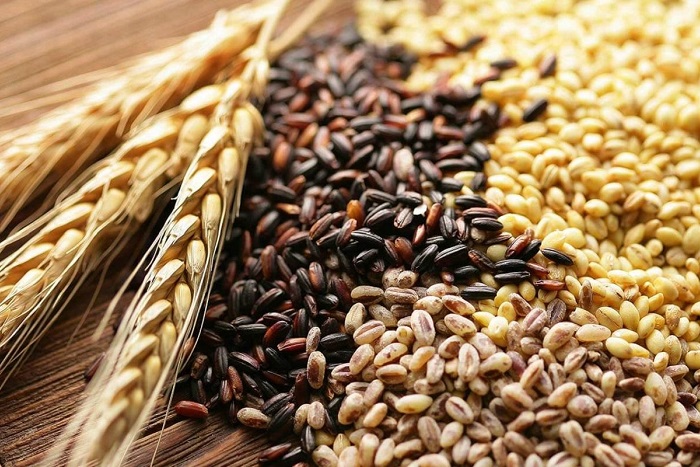
-
Simple ingredients We are constantly working to provide simpler, clearer information about our products and remove unfamiliar ingredients from our recipes.Read More
-
Shaping the future with emerging trends Changing behaviours are more than just fashion. But things move quickly.Read More



